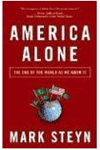|
|
..........
Visit our sister site
ExileStreet
home to conservatives
in arts and entertainment

Somewhere between
Hollywood and Vine
lies ExileStreet
In Residence:
Julia Gorin
Burt Prelutsky
Steve Finefrock
Patrick Hurley
Ralph Peters
Bruce Thornton
..........
Julia Gorin

Clintonisms
by Julia Gorin
..........

Wounded
Warrior
Please
Help Those
Who Protect Us
Burt Prelutsky

The Secret of Their
Success
by Burt Prelutsky

Conservatives Are From Mars, Liberals Are From San Francisco
by Burt Prelutsky
.........

America Alone
by Mark Steyn
..........
The
CRO Store
..........

..........
|
|
 Oceanside Oceanside |
Expelled: No Intelligence Allowed
Reviewing the Philosophical Issues
by Richard Kirk 5/2/08 |
As
expected, Ben Stein’s new documentary has been given a chilly reception
by most reviewers—by folks inclined to sympathize with the moral
stylings of Joy Behar and reluctant to express opinions at odds with
gray eminences at The New York Times.
Outside of “the usual suspects” (like Brent Bozell
of the Media Research Center) few have been willing to put their heads
on the cultural chopping block for the sake of open dialogue about a
scientific hypothesis called “Intelligent Design.” Instead, as the
movie itself asserts, most commentators are content to reiterate the
boilerplate descriptions typically employed whenever this topic is
broached.
A San Diego radio newscaster, for example, pigeonholed the production as a “movie about religion.” In fact, Expelled: No Intelligence Allowed
isn’t a movie about religion. It’s a documentary that shows how
academics and other cultural elites are blocking honest discussion of a
theory that undercuts purely materialistic explanations of the origin
of life.
A
common tactic for stifling this debate is to repeat the lie that
“intelligent design” is simply a stalking horse for “creationism.”
Though the movie doesn’t provide a detailed discussion of ID, it does
present enough superbly qualified and articulate advocates of the
theory to demonstrate that its proponents aren’t, as advertised,
slack-jawed Neanderthals in lab smocks.
The
movie also highlights more aggressive tactics for enforcing Darwinist
orthodoxy—denial of tenure, blackballing, the denial of grants, and
refusing to publish the work of ID dissidents. Professor Guillermo
Gonzalez, for example, an astronomer with a stellar publication record,
was recently denied tenure at Iowa State University, apparently because
of his association with ID theory. Similarly, at Baylor University,
Engineering Professor Robert Marks II saw his school web site unplugged
and grant money revoked when his work on information theory began
interfacing productively with ID. These are only two of several
examples presented in the film. Collectively, these cases expose a
widespread effort to marginalize academics who raise questions about
Darwinian theory and to ignore research that suggests what Sir Isaac
Newton assumed—that an intelligent designer sustains the cosmos.
The intolerance suggested by these methods is also exhibited in the
interviews Stein conducts with members of the science establishment.
Among the words that spring to mind when viewing these exchanges are
“pompous, dismissive of criticism,” and “small-minded.” One petty
tyrant (who looked every bit the part) was perfectly pleased with the
speculative theory that life emerged “on the backs of crystals.”
Another critic with a noxious demeanor dismissed ID as incredibly
“boring.” A third enforcer of orthodoxy pronounced confidently, and
erroneously, that ID proponents had published no peer-reviewed work.
Philosophically speaking, the easiest way to enforce neo-Darwinian
orthodoxy is to equate science and inquiry within a materialistic
paradigm. Given this definition, any theory that strays beyond
materialistic parameters is automatically labeled pseudo-science. These
ground rules mean that empirically derived evidence of intelligent
causation, no matter how compelling, must be ignored. As Stein’s
interview with Richard Dawkins illustrates, it’s OK to speculate (as
the late DNA researcher Francis Crick did) that life arose on earth due
to seeds planted by space aliens, but scientists aren’t allowed to
assert that a cell’s complex information codes point, more simply and
broadly, to an intelligent cause. In other words, for the Darwinist
establishment, all intelligent causes must have prior unintelligent
causes if an explanation is to be considered “science.”
As a philosopher of science, Alfred North Whitehead, observed almost a
century ago, this “fixed scientific cosmology” means that all ultimate
explanations must be expressed in terms of “senseless, valueless,
purposeless” material that is “spread throughout space in a flux of
configurations.” Stein’s movie provides a perfect example of this
nihilistic perspective in the person of Professor William Provine.
Provine’s dogmatic on-screen pronouncements link his devotion to
Darwinism to a deterministic creed that reduces moral propositions to
meaningless chatter and human beings to insignificant chatterers.
Curiously, the Professor persists in exhibiting moral and aesthetic
preferences in which he exhibits a degree of pride—as if he had the
freedom to accept inferior alternatives.
The most controversial aspect of Stein’s documentary is the way it
links Darwinism and The Third Reich. Beyond discussing how Mein Kampf’s
terminology and thought structures are deeply indebted to Darwin, Stein
also makes visits to Hadamar (where Nazis exterminated thousands of
mental “defectives”) and to Dachau (where other sub-Aryans met the same
fate at the hands of individuals who embraced the pre-Nazi science of
eugenics). Though many viewers will find this focus on a Darwin-Hitler
axis objectionable, the clear links that do exist
raise a monumental question that’s been studiously ignored by
intellectuals who view Darwin as a savior from religion. That question
goes as follows: If atheistic, materialistic, Darwinistic explanations
permeate society, aren’t actions like those at Hadamar and Dachau made
more philosophically plausible? Indeed, aren’t such actions what one
should expect in a world where “will to power” and the “struggle for
existence” are seen as “real” scientific explanations and
“intelligence” is dismissed as a quaint epiphenomenon?
The primary image Stein employs to dramatize the expulsion of open
inquiry from science is the Berlin Wall—a metaphor that combines
authoritarianism, fear, dogmatism, and the suppression of human
freedom. Expelled
provides plenty of evidence to suggest that this image is more than a
hyperbolic device to magnify a minor disciplinary quarrel. Indeed, the
film offers sufficient reason to view The Wall as a grim historical
preview of a world divested of moral import—a world where “intelligent”
explanations are given no scientific credence.
In 1925, Alfred North Whitehead
said that the prevailing materialistic outlook in science was “entirely
unsuited to the scientific situation at which we have now arrived.”
Stein’s ID proponents would add to that assertion arguments taken from
cell biology, astronomy, and information theory. More significantly,
however, Stein’s film asserts (and Whitehead would probably agree) that
scientific materialism is all too compatible with a vision of reality
that embraces authoritarianism and eugenic extermination. The latter is
clearly a compelling reason for tearing down the ugly wall that
currently separates intelligence and science. CRO
copyright
2008 Richard Kirk
|
|
|

